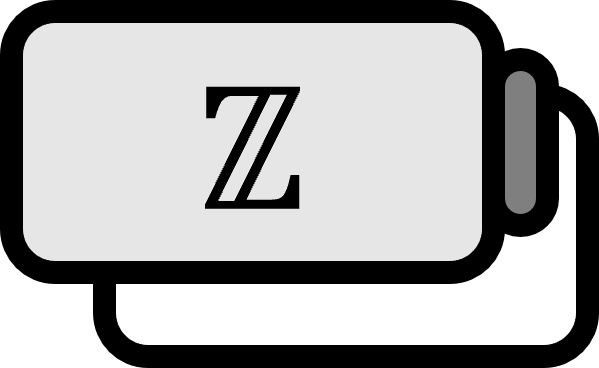Proof of the Gaussian Prime Theorem
Theorem 1
A Gaussian integer $\pi \in \mathbb{Z}[i]$ is called a Gaussian prime if it satisfies one of the following conditions.
- (i): $\pi = 1 + i$
- (ii): For a prime $p \in \mathbb{Z}$, $p \equiv 3 \pmod{4}$ for $\pi = p$
- (iii): For a prime $p \in \mathbb{Z}$, when $p \equiv 1 \pmod{4}$, $p = u^2 + v^2$ for $\pi = u + iv$
- (iv): For $\pi$ corresponding to (i)~(iii), $ i^{k} \pi$ obtained by multiplying the unit $1,-1,i,-i$ of $\mathbb{Z}[i]$
- (iv): For $\pi$ corresponding to (i)~(iii), $\overline{\pi}$ obtained by taking the conjugate
Description
When talking about Gaussian integers, $\pi$ usually represents a Gaussian prime, not pi. This is to prevent confusion, as the primes of ordinary integers are often referred to as Natural Primes $p$. Such an extension of primes makes the study of Gaussian integers truly number-theoretic.
(i)
$(1 + i)$ serves as a number that replaces the traditional $2 = 1 - (i)^2 = (1 + i)(1-i)$, implying that there’s no ‘smaller’ Gaussian prime than this.
(ii)
For instance, $7$ cannot be factorized into primes even with Gaussian integers. It’s pointless to check if it’s really impossible, so it’s recommended to start with the proof.
(iii), (iv), (v)
As an example, $5$ can be factorized since $5 = (2 + i)(2 - i) = (1 + i2)(1 - i2)$. It’s problematic to think that there are two factorizations for $\mathbb{Z}[i]$, a UFD, since it can be expressed as the product of units as shown in $2+i = i(1 - 2i)$. Meanwhile, $(2+i)$ and $(2-i)$, and $(1 + i2)$ and $1 - i2$ form conjugates, proving they are Gaussian primes.
Proof
Strategy: $(Z[i] , N)$ is a Gaussian ring defined by the norm as $N(x+iy) = x^2 + y^2$. (Where $x, y \in \mathbb{Z}$) The proof of Gaussian prime theorem itself is nothing more than combining its algebraic properties with various results from elementary number theory, but understanding these properties and results is the challenging part.
Part 0. If $| N( \pi ) | = p$ is a prime, then $\pi$ is a Gaussian prime.
Multiplicative Norm Property: Let’s say $ p \in \mathbb{Z}$ is a prime.
- [1]: If the multiplicative norm $N$ is defined as $N(1) = 1$, then for all units $u \in D$, $| N ( u ) | = 1$
- [2]: If all $\alpha \in D$ satisfying $| N ( \alpha )| =1$ are units in $D$, then $\pi \in D$ satisfying $| N ( \pi ) | = p$ is an irreducible element in $D$.
- [3]: The only units in $\mathbb{Z}[i]$ are $1,-1,i,-i$.
According to [3], the only units in $\mathbb{Z}[i]$ are $1,-1,i,-i$ and by [1] $$ N(1) = N(-1) = N(i) = N(-i) = 1 $$ . Since all $\alpha$ satisfying $| N ( \alpha )| =1$ were units in $\mathbb{Z}[i]$, by [2], $\pi$ satisfying $| N( \pi ) | = p$ becomes an irreducible element in $\mathbb{Z}[i]$. In other words, if $| N( \pi ) | = p$ is a prime, then $\pi$ is a Gaussian prime.
Part (i). $\pi = 1 + i$
If $\pi = 1 + i$ then $N(\pi) = 1^2 + 1^2 = 2$ is a prime, so by Part 0, $\pi = 1 + i$ is a Gaussian prime.
Part (ii). $\pi \equiv 3 \pmod{4}$
Let’s assume there exists a factorization like $\pi = ( a + ib )( c + id )$ for a prime $\pi = p$ satisfying $p \equiv 3 \pmod{4}$ that is not a Gaussian prime of $\mathbb{Z}[i]$. According to the multiplicative property of $N$, $$ \begin{align*} p^2 =& \pi^2 + 0^2 \\ =& N ( \pi + i 0 ) \\ =& N ( a + ib ) N ( c + id ) \\ =& (a^2 + b^2) (c^2 + d^2) \end{align*} $$ Then, $p^2 = (a^2 + b^2) (c^2 + d^2)$, but since $p \in \mathbb{Z}$ is a prime, there must exist a solution satisfying $\begin{cases} a^2 + b^2 = p \\ c^2 + d^2 = p \end{cases}$.
Necessary and Sufficient Condition for a Prime to be Congruent to 1 mod 4: Let’s say $p \ne 2$ is a prime. When $p \equiv 1 \pmod{4}$, for some $a,b \in \mathbb{Z}$, $p = a^2 + b^2$
However, since $p \equiv 3 \pmod{4}$, according to the Necessary and Sufficient Condition for a Prime to be Congruent to 1 mod 4, there’s no solution that satisfies $\begin{cases} a^2 + b^2 = p \\ c^2 + d^2 = p \end{cases}$, leading to a contradiction, hence $\pi \equiv 3 \pmod{4}$ is a Gaussian prime.
Part (iii). $\pi = u + iv$
For a prime $p \in \mathbb{Z}$, since $p \equiv 1 \pmod{4}$, according to the Necessary and Sufficient Condition for a Prime to be Congruent to 1 mod 4, $$ N (\pi) = N ( u+ iv) = u^2 + v^2 = p $$ $\pi = u + iv$ that satisfies these conditions is a Gaussian prime due to Part 0.
Part (iv). $ i^{k} \pi$
Since in Part 0, if $| N( \pi ) | = p$ is a prime, then $\pi$ is a Gaussian prime, therefore for $k \in \mathbb{Z}$, $$ \begin{align*} N( i^{k} \pi ) =& N( i^{k} ) N (\pi ) \\ =& 1 \cdot N (\pi ) \\ =& p \end{align*} $$ $i^{k} \pi $ fulfilling these are also Gaussian primes.
Part (v). $\overline{\pi}$
Since in Part 0, if $| N( \pi ) | = x^2 + y^2 = p$ is a prime, then $\pi = x + i y$ is a Gaussian prime, $$ \begin{align*} N( \overline{\pi} ) =& N( x - i y ) \\ =& x^2 + (-y)^2 \\ =& p \end{align*} $$ thus, $\overline{\pi}$ fulfilling these conditions are also Gaussian primes.
■
Silverman. (2012). A Friendly Introduction to Number Theory (4th Edition): p275. ↩︎
